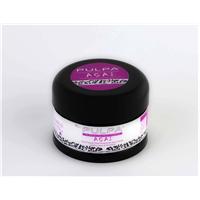 We are always hearing about the latest superfood, essential fats or good carbs but what do they actually do for you? Every week a new study tells us we should be eating more tomatoes, or how much more important omega 3 oil is than omega 6.
We are always hearing about the latest superfood, essential fats or good carbs but what do they actually do for you? Every week a new study tells us we should be eating more tomatoes, or how much more important omega 3 oil is than omega 6.
Sadly, with each bit of new information we find ourselves just that little bit more confused. In addition to the announcements of what we should be eating each week, there are also regular reports and scare stories on how fat we are all getting.
Diet food is getting us nowhere fast. Levels of obesity are going up as fast as the amount of money we all spend on the latest meal replacement, shake or appetite suppressant. We have also recently been told that extended periods of time on low carbohydrate diets can be extremely damaging for our bodies.
That news is going to be a ‘body’ blow to many of us: the revelation that cutting out carbohydrates was an easy way to a flat stomach meant many of us could get ready for a holiday or wearing a tighter dress in a couple of weeks rather than months.
It is not hard to see where the problem lies If you walk around a supermarket and pick up random items off the shelves, how many ingredients do you actually recognise? Most foods have extra salt and sugar added to them as standard – even so called diet or reduced-calorie foods.
This has a worrying effect on our health and energy levels. The only answer is for us to learn how food affects our bodies on a chemical level. In the coming weeks Elixir will break down each of the superfoods, oils, essential vitamins and magic ingredients into small manageable pieces of information which can help us lead a healthier (and skinnier!) life.
So look out for our future ‘fuss about food’ articles, starting next Monday – we promise you will be an expert on glycaemic load and complex carbohydrates in no time at all. Monday: All the fuss about…. Omega 3

